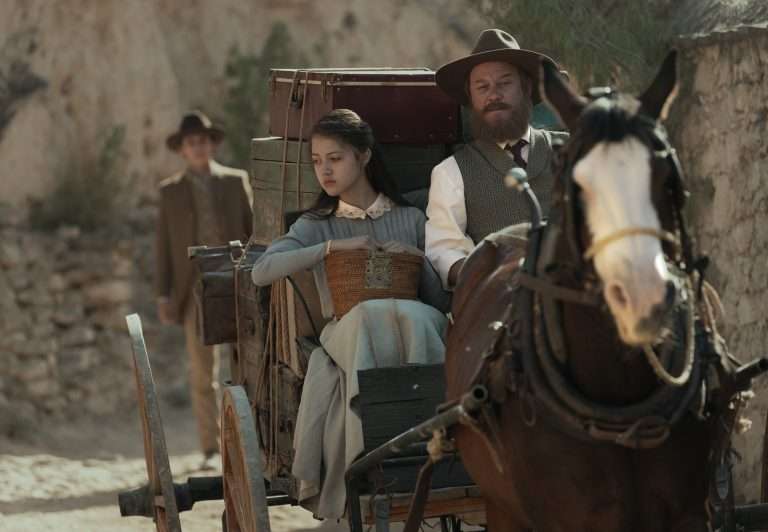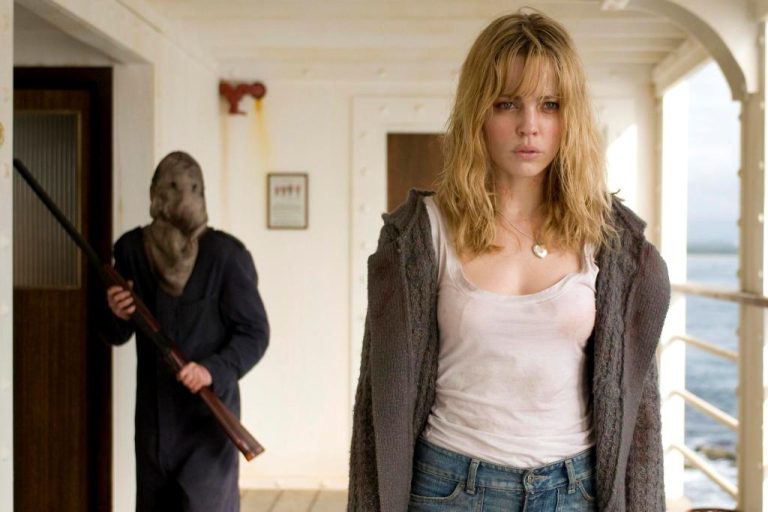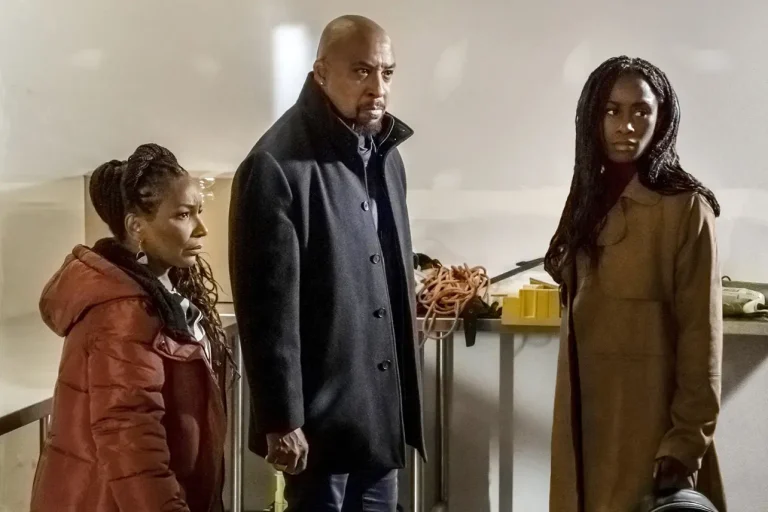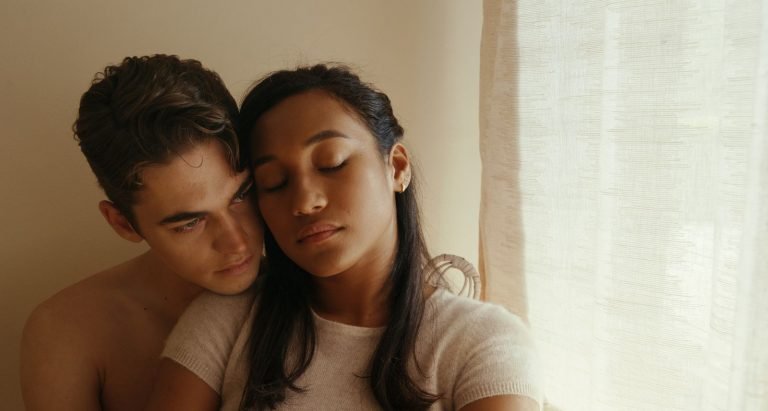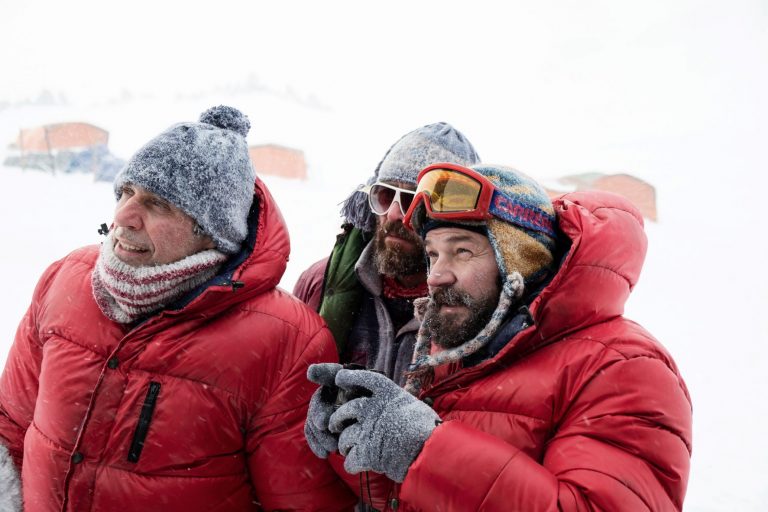The Daughter (2022), directed by Soumyak Kanti DeBiswas, is a short film currently streaming on Jio cinema as a part of their MAMI 2023 lineup. The film is set in a curfewed city in India; the world is dystopian, and yet, unfortunately, a very familiar sight we see on the news today. The first shot of the film is a clip of the smoldering sun, a crystal clear telescopic view of the state of mind of Indu (Ira Dubey), the daughter, on her smoke break. The father (Naseeruddin Shah), who is with Indu at the hospital, seems to need a favor from his begrudging daughter. Indu’s mind seems to drive her into a corner as she embarks on a drive to fulfill her father’s wish. The city’s usual way of life has come to a standstill: hospitals are dilapidated, roads are empty, and money isn’t currency anymore. Driving through the bombarded city, Indu goes down memory lane with unpleasant emotions from her childhood re-surfacing as she tries to make sense of her task at hand.
In general, there is something very compelling about the combination of parent-child-car that brings out conflict like no other. The scene in Lady Bird with her jumping off a moving car to avoid a fight with her mother generates more solidarity than humor in me. As one can imagine, an enclosed moving tin can is not a very pleasant space to share with somebody difficult to confront. But Indu finds the courage to do so; she almost uses it as an excuse to do what she couldn’t hold the space for otherwise. The car, in a way, becomes accommodating of her memories, thoughts, and feelings.
Metaphorically and literally, she drives this ride to its destination. Her character’s arc represents a process we are all forced to go through, some due to extraneous circumstances and some purely due to intrinsic ones. She seems to be jerked by circumstances to deal with her traumas from the past, while there are also indications of her being distant from her father as an adult. So when faced with such a trying situation involving him, it’s her childhood self that deals with the disturbing memories, almost like picking up from exactly where she left off. The father in the car also treats her like the child he remembers her to be. He consoles her with funny poems, knowing precisely what would make her laugh.
Throughout The Daughter, the father in the car often emotes in poems about “Mouse the Musketeer” the brave and gallant mouse, elaborating on the paradoxical nature of the fierce musketeer who, on the inside, was just a scared mouse. In a way, both Indu and her father were taking turns to be the mouse and the musketeer with a decision that meant life and death to them. Trying to let go while she also indulged in memories of her father, Indu thinks of a day in her childhood when she was by the beach with him. She remembers her father’s usual drunkenness, the love, and closeness they once shared, the father walking into the sea with his arms stretched and the sun, the sun that again cut to the same telescopic view of little Indu’s state of mind on a day out with her father.
The recurring frame of the sun could indicate a sensory association she carried with her. In a way, the Indu at the beach and the Indu at the hospital had to deal with the same fears and insecurities regarding her father. We know both of them are blinded looking into the sun but squinting nonetheless to make sense of it all. A lot of the time, we leave behind conflicted feelings from our childhood as something we are convinced we’ve grown out of. But much like software updates, no matter how much we try to avoid it at any given moment, these feelings will have to be given the time they need the next time we are faced with them.
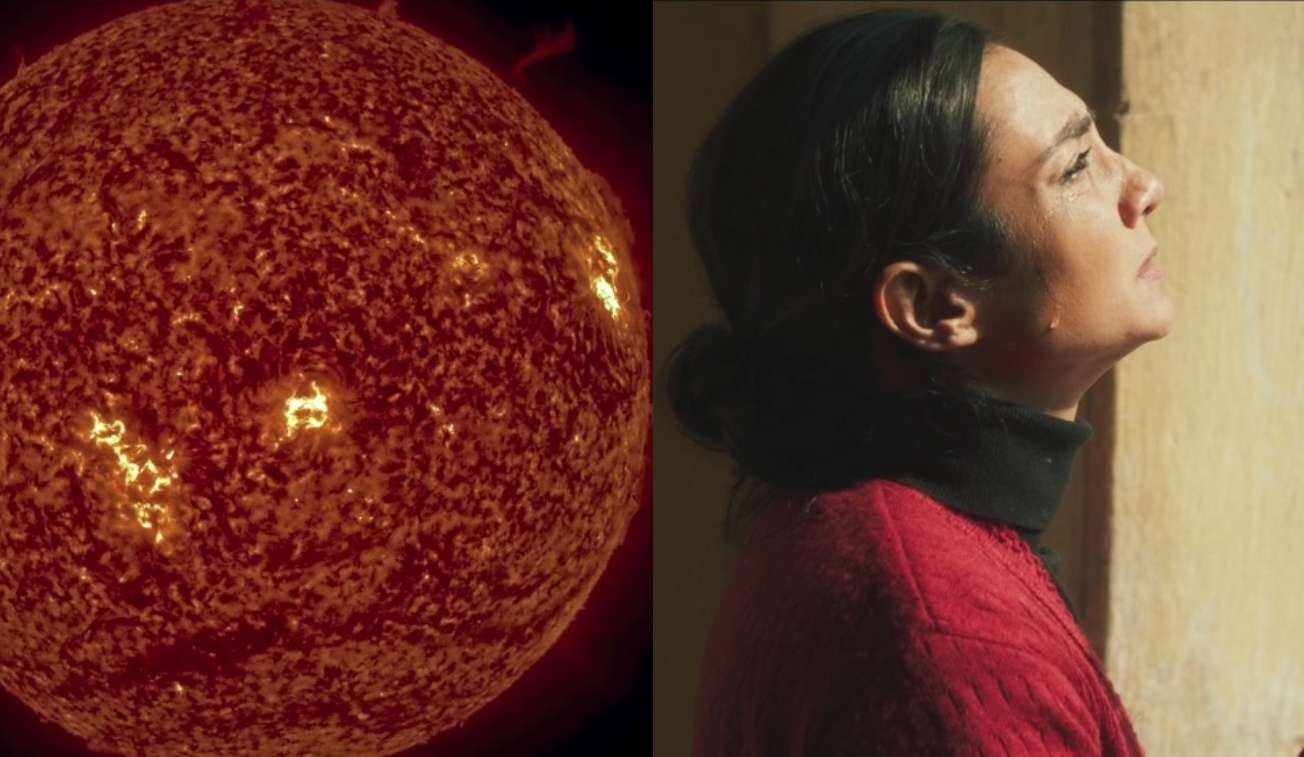
The association of the sun with her father reminds me of the relationship Sophie shares with Calum in Aftersun. Also, the fear she faces of losing her father to something out of her control reminds me of the relationship Murph shares with Cooper in Interstellar. As a daughter who has a close relationship with my father as well, I wonder how, along with this list of fictional characters, I also have fond memories of my father and me outdoors. It does seem as though fathers typically get assigned the more sunny days of parenting. It is interesting to make a casual observation of the way a father-child relationship versus a mother-child relationship is represented on screen.
Memories with one’s father are mostly shown in days of vacation, leisure, or outside of a routine. On the other hand, memories with one’s mother are represented more in the everyday things of life. There are exceptions to this prototype, of course, like the father-daughter relationship in Coda. Exceptions like these bring out the complexities of the relationship dynamic just as any other but also provide a different and much-needed perspective to the table.
Regardless of how the maker chooses to tell the story, the fact remains that a father’s role in a young daughter’s life is scarily indispensable. Trying to understand flawed characters like Calum or the father in this film, I see beyond the concept of fathers being a stable emotional pillar of strength. Characters like an adult Sophie, an adult Murph, and an adult Indu deal with memories and what they make of them in the present through a more independent, empathetic agency that sees a father as also a man with flaws and mental weaknesses.
Admittedly so, the father in this film also speaks of “Mouse the Musketeer’s” dejection with life. Indu’s acceptance and manifestation of this hints at the forgiving lens through which she justifies her father’s fatal addiction and the consequences of it. She might not have been able to forgive him verbally, but she understands his need and his ask. In one of the most poignant scenes from The Daughter, the father throws a fit for his request to be fulfilled. Indu gives in by setting her own doubts aside because she knows her father would have it no other way.
It is heartbreaking to us when we later realize what he was asking of her so fervidly and helplessly. It immediately made me respect the position from which Indu was able to see beyond her instinctual needs. She holds him responsible for her trauma but also has it in her to know this decision was exclusive beyond what her heart felt.
Like the scene from Million Dollar Baby in the hospital, a granted wish like this exposes us to the delicate moments of life where morality, society, and religion don’t interfere with empathy towards the human condition. Giving her father the respite he seeks isn’t merely a moral question anymore. They exist in a world where strict legislation of medical procedures is suspended, and they don’t face the usual resistance towards something like this. The conflict is more so a fix of letting go and holding on for the sake of everything unresolved and unexpressed between them. Towards the end, however, Indu chooses to let go in more ways than one.
Read More:
Love and Longing in ‘Sunday’ and ‘My Mother’s Girlfriend’
Penetrating the Patriarchy and Exploring the (Lack of) Feminine in An Exercise In Discipline: Peel (1986)
Qala (2022): The Anatomy of Guilt

